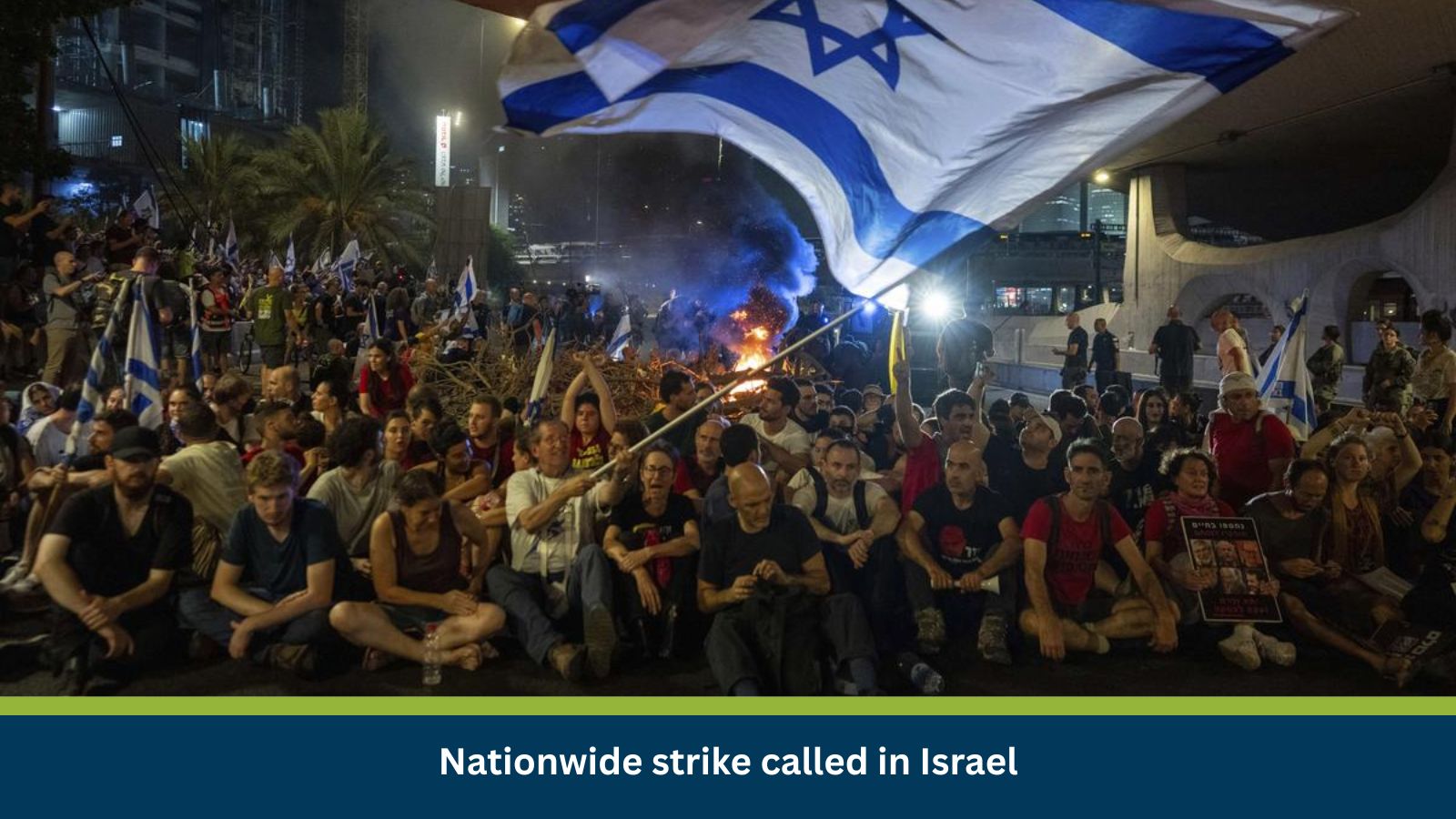What is Risk Analysis in context of Civil Disturbance?
Civil disturbance risk assessments evaluate how protests and demonstrations impact urban mobility, workplace safety, supply chains, and public services. They enable businesses to prepare for disruptions, mitigate risks to operations, and ensure staff welfare through timely intelligence.
Executive Summary
- Date of Incident: 17 August 2025
- Location: Tel Aviv, Israel
- Risk Category: Civil Disturbance
- Severity Score: 4/5
- Confidence Level: 85%
A nationwide strike called for Sunday, August 17th, by families of Israeli hostages presents a significant short-term risk to stability and operations across Israel. Historically, similar large-scale demonstrations have resulted in widespread public disruption, with a high likelihood of significant transportation disruptions, business closures, and potential civil unrest. The immediate disruption is expected to last for a single day, but could trigger follow-on protests, extending the impact window to 72 hours. This situation is rated with high severity given the potential for economic paralysis and social unrest.
Known Hotspots and Sensitive Areas
Key sensitive areas include the Knesset (Israeli Parliament) in Jerusalem, the Prime Minister’s Residence on Balfour Street in Jerusalem, and the Kaplan Street/Azrieli Junction in Tel Aviv, known for large-scale demonstrations. Ben Gurion Airport (TLV) near Tel Aviv is also a sensitive area for potential protest activity.
Impact on Transportation and Services
- Travel & Mobility: Severe disruption to ground transportation is expected, including major road closures like the Ayalon Highway, and potential impacts on public transit and access to critical transport hubs such as Ben Gurion Airport.
- Business Operations: Significant disruption is anticipated as businesses face reduced workforce availability, diminished consumer traffic, and potential closures, mirroring impacts from previous nationwide strikes.
- Supply Chain & Logistics: A high impact on the movement of goods and services is expected due to road closures, potential port/airport operational delays, and general business disruptions.
- People Safety: High risk of localized clashes between protesters and security forces, as observed in past demonstrations in Tel Aviv and Jerusalem, potentially leading to injuries and arrests.
- Social Cohesion: There is a high risk of exacerbating existing societal divisions over the government’s war strategy and leadership, potentially leading to increased polarization and internal tensions.
Recommended Actions
- Prioritize Employee Safety & Mobility: Implement mandatory remote work for all roles capable, and for essential on-site personnel, arrange secure, company-supervised transportation or flexible shifts to circumvent public transport disruptions and potential protest areas. Establish clear internal communication channels for real-time safety advisories and emergency contacts.
- Activate Supply Chain & Operational Contingencies: Diversify logistics routes and methods to bypass expected transport blockades, secure alternative suppliers for critical inputs, and consider temporary increases in inventory for essential goods to ensure uninterrupted production or service delivery.
- Maintain Business Continuity & Stakeholder Communication: Establish a dedicated incident response team to monitor the strike’s progression, assess real-time impacts on services, and coordinate cross-departmental responses. Proactively inform clients and external stakeholders about potential service delays or changes.
- Enhance Physical Asset Security: Increase vigilance and deploy additional security measures at all company premises, including securing entry points, monitoring surrounding areas for protest activity, and coordinating with local authorities to ensure the protection of physical assets and on-site personnel.
Emergency Contacts
- Police: 100
- Fire Department: 102
- Ambulance: 101
Final Thoughts
The baseline scenario anticipates a significant but largely contained one-day strike on August 17th, with manageable disruptions. A moderate escalation could lead to more prolonged and widespread road closures, with intensified clashes between protesters and security forces. A severe escalation, though a low probability, could lead to a prolonged period of civil unrest and sustained industrial action across multiple critical sectors, with profound economic impacts. Businesses must prepare for the baseline scenario while being mindful of the potential for escalation, prioritizing employee safety and maintaining communication.
Stay ahead of operational risks with real-time alerts, scenario modeling, and expert advisories with datasurfr’s Predict. Start your 14-day free trial of Datasurfr’s Risk Intelligence Platform today.






